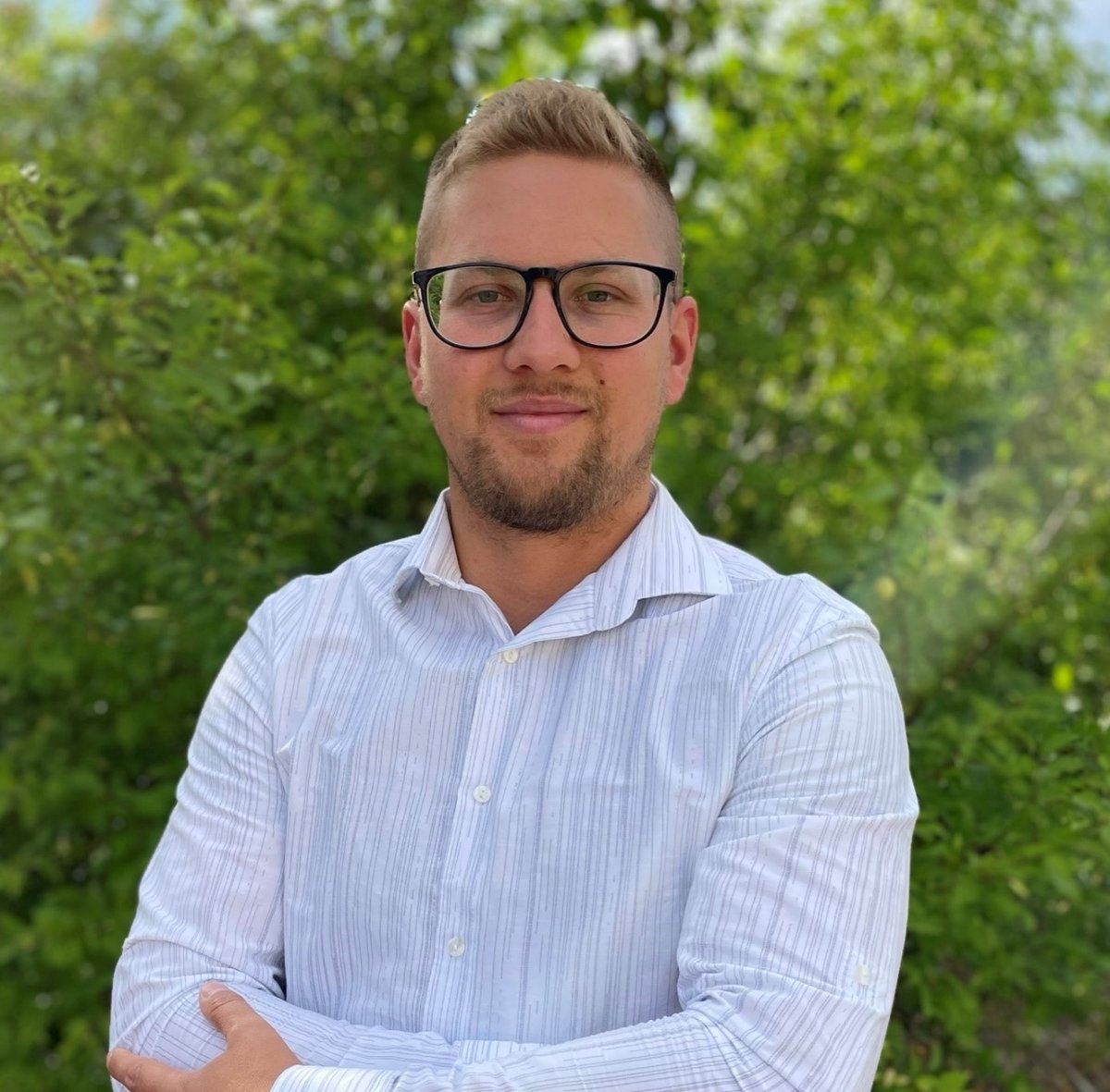Interview with BTU Alumnus Sebastian Hanusch (Wirtschaftsingenieurwesen)
Deutsche Bahn and BTU Cottbus-Senftenberg signed a cooperation agreement in February 2024 to work more closely together. Fittingly, we spoke to BTU alumnus Sebastian Hanusch, who works as a regional manager for superstructure for DB InfraGO AG in the eastern region, about his experiences from his studies and everyday work.
Hello Mr. Hanusch, you studied a Bachelor's and Master's degree in Business Administration and Engineering at BTU. How did you come to study here, what interested you in the subject and what was your experience like?
When I finished my A-levels in 2011, like many others I didn't know exactly which direction I should take. I had lots of conversations with acquaintances, family and friends and my goal from the start was to stay in my home town of Cottbus. In addition to dual study programs offered by companies, I also looked around for interesting-sounding study programmes at BTU. I came across the Business Administration and Engineering study programme via the website and visits to the university and found it very diverse right from the start, especially because it combines the technical and economic components and therefore covers a broad spectrum. There was also a wide range of options for specializing later on in the course. The course was indeed very demanding, especially the first semesters. But I think the transition from school to university is completely normal. Due to the close proximity to the main campus and the manageable size of the city compared to other metropolitan areas, studying at BTU is ideal for making contact with like-minded people over short distances. The overall very informal atmosphere was a key reason why I felt so comfortable at BTU.
You have been working for DB Netz AG in the eastern region as Regional Head of Superstructure since 2023. How did you get the job and what tasks are you responsible for? How can we imagine your day-to-day work?
After completing my Master's degree in 2017, I started working in local transport by chance before switching to Deutsche Bahn at the beginning of 2023. I became aware of the position through a former fellow student and the DB job portal on the internet. Overall, I think Deutsche Bahn generally has a high public profile, especially in Cottbus with regard to the new Cottbus plant and the general shortage of skilled workers in the maintenance professions such as at DB InfraGO. The position requires special functional training within DB, in which you get to know all possible work processes and structures, the infrastructure facilities and interrelationships in rail operations. This functional training takes about 1-2 years. My tasks after the functional training are roughly summarized: The management and determination of maintenance measures in the superstructure trade so that a safe operating condition of the infrastructure facilities is guaranteed at all times. This can include a very diverse range of tasks, from inspections to repair measures.
Among other things, Deutsche Bahn and BTU want to bring more practical relevance to the course. In your experience, how important do you think practical relevance, internships and work experience are for students?
Practical experience is essential in later professional life. In addition to practical experience, the main thing is to find out for yourself what is right for you and what is perhaps not. Regardless of whether the experience is negative or positive, there is always a benefit for you. I myself gained my first practical experience in internships during my Bachelor's and later my Master's degree. Completing the mandatory internship during your studies is definitely an important milestone. The internship at Deutsche Bahn in Karlsruhe during my Master's degree in 2016 was one of the decisive factors that convinced me of the railroad system and Deutsche Bahn. Working student jobs also have great added value. If you are already working during your studies, the transition to your later professional life is much easier.
What do you miss most from your periods of study?
Oh, there are quite a few things. In a very clichéd way, I would definitely include sleeping in part of the time if you were lucky enough that lectures didn't start until later. Above all, it includes a lot of freedom in organizing and planning your day. Of course, this also includes the carefree get-togethers with fellow students. But there are also many advantages after graduation and, in conclusion, it can be said that studying was definitely worthwhile, despite all the effort.

